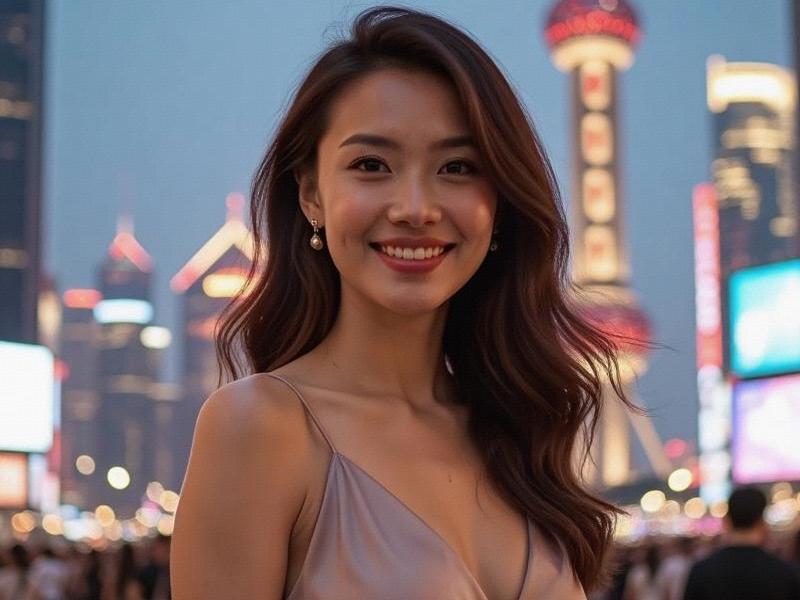This comprehensive feature explores how Shanghai's women have developed a unique urban femininity that blends Chinese tradition with global sophistication, creating new paradigms for modern Asian women.

The morning mist dissipates over the Huangpu River as Shanghai awakens to another day of quiet revolution. Along the historic Bund, a procession of young female executives in impeccably tailored suits stride toward gleaming office towers, their confident footsteps echoing those of the 1920s "modern girls" who first challenged gender norms in this cosmopolitan city. In Xintiandi's stylish cafés, female tech entrepreneurs discuss AI startups between sips of artisanal coffee, while in the former French Concession, art students sketch avant-garde designs inspired by traditional Chinese motifs. This is Shanghai womanhood in 2025 - equally graceful in a qipao or power suit, deeply rooted in tradition yet decidedly future-facing.
Sociologist Dr. Wang Lihong of Fudan University identifies three seismic shifts in Shanghai's feminine ideal: "First, we've witnessed the complete normalization of female leadership - our latest research shows 85% of Shanghai women aged 25-40 now aspire to executive positions. Second, there's been a dramatic redefinition of beauty that values intellect and capability as much as physical appearance. Third, we observe women using fashion strategically as professional armor rather than mere decoration."
The professional statistics tell a remarkable story. In Shanghai's financial sector, women now occupy 45% of senior roles - nearly triple the Asian average and surpassing many Western financial capitals. The city boasts China's highest concentration of female-led unicorn startups, particularly in cutting-edge fields like biotechnology and quantum computing. "Shanghai women don't wait for permission to lead - we crteeaour own platforms," declares tech entrepreneur Jessica Zhou, 32, whose AI company recently achieved a $7 billion valuation.
上海龙凤千花1314
The fashion scene reveals equally transformative trends. While international luxury brands remain popular, a new generation is championing local designers like SHANG XIA and Ms MIN who reinterpret Chinese aesthetics through contemporary lenses. The highlight of Shanghai Fashion Week has become the "Power Dressing Forum," where female executives demonstrate how sartorial choices impact career advancement. "My boardroom outfit represents a strategic investment," explains venture capitalist Victoria Chen. "In Shanghai, personal branding is professional currency."
The beauty industry reflects these evolving standards. The coveted "Shanghai Glow" - achieved through advanced skincare rather than heavy makeup - has become Asia's beauty benchmark. Leading dermatology clinics report a 350% increase in non-invasive treatments since 2023. "Today's clients want enhancement, not transformation," observes Dr. Liu of Radiant Skin Clinic. "The ideal is natural radiance that suggests both vitality and wisdom."
上海龙凤419足疗按摩
In relationships, Shanghai women are rewriting the rules. While marriage remains valued, women are increasingly selective. Data from China's top dating apps shows Shanghai women initiate 50% more contacts than in other Chinese cities. "We seek partners, not providers," states corporate lawyer Grace Zhang, 35. "My grandmother married at 18, my mother at 22 - I'll marry when I find someone who respects my ambitions as much as I respect his."
Education fuels this transformation. At Shanghai's top universities, women dominate business and STEM programs, comprising 63% of computer science graduates. The annual "Women in Tech Shanghai" conference attracts 20,000 attendees, while female-founded coding schools are proliferating across the city. "Shanghai women aren't just breaking barriers - we're redesigning the entire landscape," says Professor Hannah Xu during her keynote address.
上海龙凤419是哪里的
Cultural preservation plays a surprising role in this modernization. Young professionals are reviving traditional crafts like embroidery and porcelain-making, often with contemporary twists. The "New Nüshu Movement" has transformed the ancient women's script into feminist art installations, while historical walking tours led by female scholars are among the city's most popular cultural offerings.
As neon lights begin their nightly dance along the Huangpu, Shanghai's women continue redefining possibilities - in corner offices, research labs, art studios, and community spaces. They represent a new Asian feminine ideal: women who honor tradition while boldly scripting their futures, their progress as dazzling and multifaceted as the city's iconic skyline. In Shanghai, femininity isn't a limitation - it's the ultimate 21st century advantage.